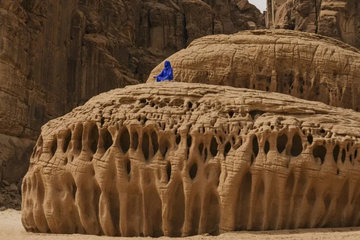
When Saudi Arabia’s King Abdulaziz Center for World Culture, also known as Ithra, finally opened its doors after being under construction since 2008, it was very well-received by the general public and marked a new era in the Kingdom regarding the development of its art and cultural offerings. Although only open for less than a year now, Ithra has already attracted hordes of visitors from across the country and beyond, with recent reports stating that over a million visitors have walked through the doors of this landmark center this year alone.
Ithra is the first incubator of knowledge of its kind in Saudi Arabia, offering many programs that aim to create a positive and tangible impact in the fields of knowledge and culture. These programs have so far led to the non-stop flow of visitors, who according to an article by Saudi Gazette, have been about 83 percent Saudis and 17 percent non-Saudis to date. The acting Director of the center, Fatima Al-Rashed, explained that the below-30 age group comprised 50 percent of the total number of visitors. Rashed also explained that about 1,000 training workshops have been held to date at Ithra, benefiting 10,000 participants.
Amongst its most recent programs have been an exhibition titles “Zamakan: Notions of Time and Space Complexity Tour,” which showed in August this year. Some of the best contemporary works in Saudi Arabia took centerstage at the exhibition, which showcased 11 Saudi-based artists who use their art “to ponder universal questions,” such as where we as humans came from, what the future is, and how space and time shapes their individual view.
Ithra was built to allow for the development of distinct programs, its space comprising 100,000 square meters of cultural facilities, including the 200,000-book library; a 930-seat auditorium; a smaller auditorium for a cinema; the Idea Lab offering design exhibitions and workshops; Knowledge Tower, a multi-room venue; a museum; and archives. The center aims to create a positive and tangible impact in the fields of knowledge and culture by preparing the national talents for the knowledge-based and innovation-based creative industries.

















